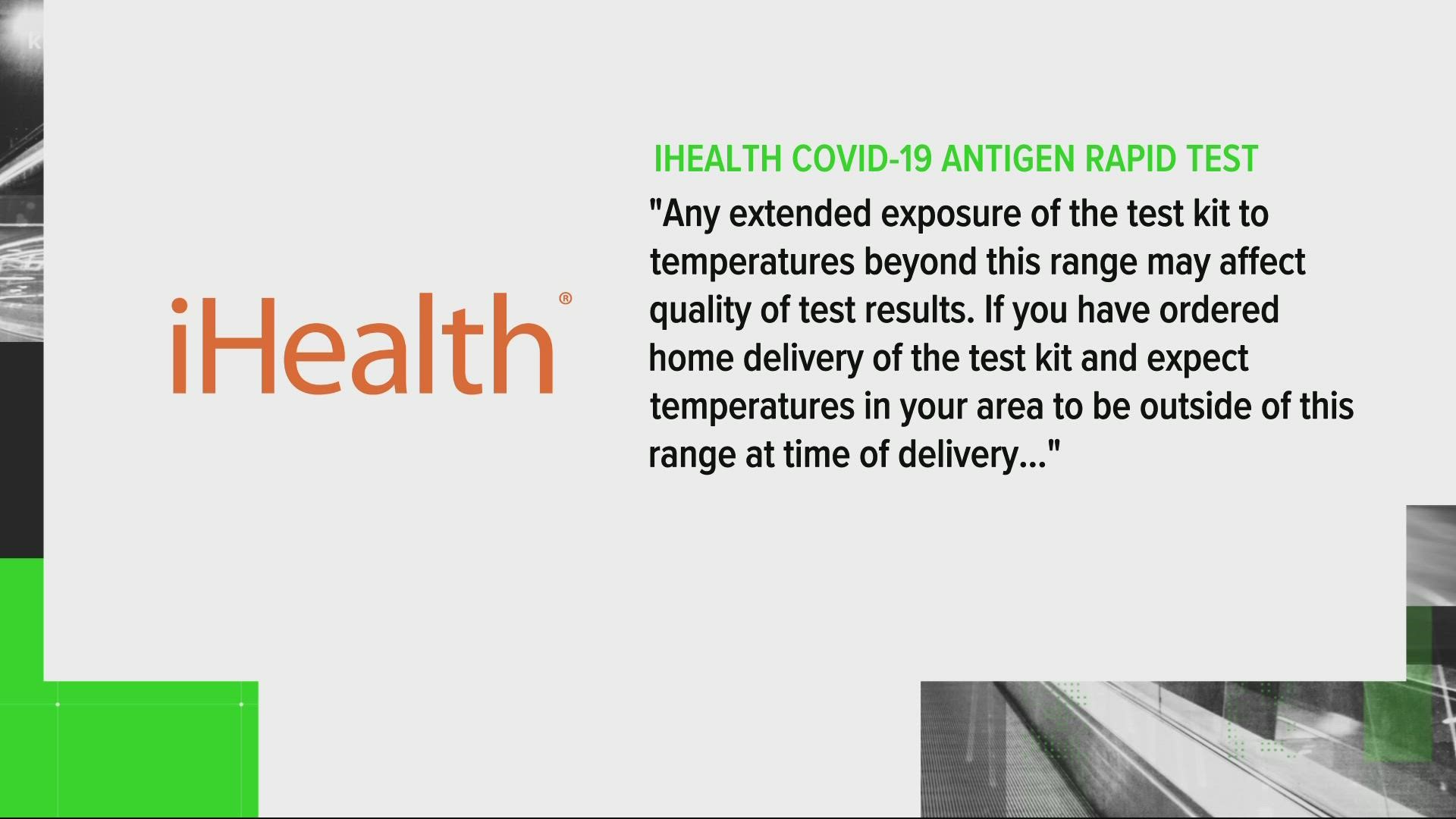SPOKANE, Wash. — Millions of Americans and Washingtonians are receiving their free at-home COVID-19 tests through federal and state programs, which has led some to wonder if the tests are still good if they have to sit outside in their mailbox for a while.
Both federal and state programs are sending free at-home COVID tests to people in Washington. As residents await the delivery of their tests, the Inland Northwest and surrounding areas are still in the thick of winter, with cold temperatures, frost, fog, and everything in between.
KREM 2 received a message from a viewer saying they did not know their at-home tests had been delivered. Therefore, the tests were left outside on their porch overnight, causing them to wonder if the tests could still be used.
THE QUESTION
Will at-home COVID-19 tests be ruined if they are left outside in below-freezing temperatures?
THE SOURCES
- Dr. Geoff Baird- Head of the University of Washington Medical Lab
- iHealth Rapid Antigen Test
- BINAXNow AntigenTest
THE ANSWER
It depends on the brand.
According to Baird, freezing temperatures may impact at-home COVID-19 tests, but the answer is not black and white.
"Each of these tests has a dropper or some chemicals inside of it that work together with each other and each one is slightly different," Baird explained. "So one manufacturer's answer for that is different than another."
While there are numerous at-home COVID-19 test brands, the iHealth Rapid Antigen Test and the BINAXNow Antigen Test are the most popular in the Spokane area.
The average low temperature in the Spokane area last week was in the mid-20s. The iHealth Rapid test has a temperature range oof 36-86 degrees Fahrenheit, while the BINAXNow Antigen test has a range of 35.6-86 degrees Fahrenheit.
Abbot, the company that produces the BINAXNow test, issued the following statement to KREM 2's Washington D.C. affiliate, WUSA:
If the test is stored outside the temperature range for a relatively short period of time, for a couple of hours up to a day or two - it will be fine to use, and it's important that test and its components be used at room temperature.
iHealth also issued a statement on using their at-home tests after they have been left in cold weather:
Any extended exposure of the test kit to temperatures beyond this range may affect the quality of test results. If you have ordered home delivery of the test kit and expect temperatures in your area to be outside of this range at the time of delivery, it is recommended that you arrange for someone to be home at or near the time of delivery to receive the test kit.
Bair said some of the ways tests can be damaged by the cold is through physical damage to the equipment inside the package, which can also affect the liquids inside.
"When you freeze and thaw something, what might happen is that some of those salts and buffers might not be in solution anymore, they might crash out into like a powder," he explained. "And then when you re-thaw it, they may not actually get back into solution real well, and so there'll be the wrong concentration of buffers, and salts."
If you're at-home COVID-19 test was left outside for an extended period of time, it is recommended to check the test's temperature range on the packaging.

